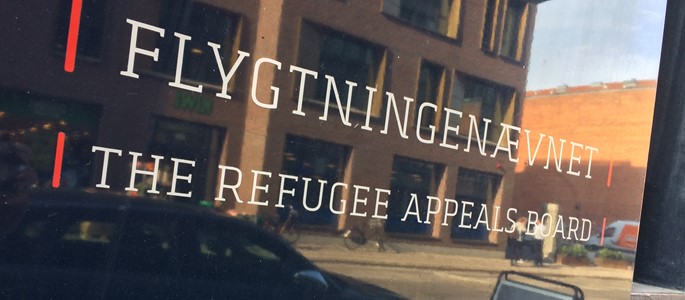Good news for Syrian refugees in Denmark
The decisions from The Refugee Appeals Board in six Syrian test case challenge the status decisions from Immigration Service, and the new government opens up for improvements for refugees
The last week of June has been good for Syrian refugees in Denmark – especially the 4,500 who have been granted the 1-year, very temporary status after article 7(3) in Danish immigration law, referring to the general situation in Syria. There are several reasons to why their future in Denmark looks brighter now.
The Syrian test cases
Danish Immigration Service evoked the residence permits for six Syrian refugees, all from the Damascus province and all with residence under article 7(3). This was done with reference to the fact finding report from February this year, describing a more positive general security situation in Damascus province. But it was questioned by many, as no other European countries had done sometjing similar, and UN strongly warns against any kind of returns to Syria.
The six test cases were assessed in The Refugee Appeals Board recently, and in all of them the board not only disagreed with the revoking, but also changed the status of them all to the much stronger r7(2) = individual protection status, or 7(1) = convention status. The board did not dismiss a change for the better on the general security situation in Damascus, but found in all six cases that there was individual reasons for protection that Immigration service had not found. See below. This opens up for a new situation, as almost all Syrians with 7(3)-status can ask for a change of status based on these decisions, and in this way obtain a much stronger legal position – including the right to family reunification without a 3-year waiting period. This will also affect the status of new applicants from Syria.
Refugees with asylum after article 7(3) can ask Refugees Welcome for help and assistance if they want to apply for a change of status (our office is closed in July). It is also possible to ask The Refugee Appeals Board yourself directly (fln@fln.dk).
Persons with one or more of the following profiles can apply for status change with direct reference to the test cases:
• Close family members to persons with a particular risk profile, for instance persons who have absconded from miltary service, or in other ways put themselves in opposition to the Syrian authorities
• Persons who come from or have stayed in areas formerly controlled by the opposition
• Employees in public service who have left their jobs without permission
• Persons who have been exposed as opponents to the Syrian regime, for instance through media in their countries of residence.
Read Danish Refugee Council’s thorough fact sheet on the situation in Syria (in Danish), where you can find these quotes from UNHCR`s Nordic representative Henrik Nordentoft from March 23 2019: “According to UNHCR we are not in doubt: conditions in Syria are not yet sufficiently safe, secure and sustainable for Syrains to return home.” and from the UN Investigation Committee on Syria, Februray 2019: “Beyond clashes, seven years of prolonged hostilities have generated numerous security vacuums, elevating the risk of both continued violence in many areas and impunity for serious human rights violations. The three Commissioners emphasised that the scope and scale of violations create extensive barriers to safe and sustainable return."
Shortly on the six test cases:
1) Married couple with two children. The husband was interviewed in Danish news paper Berlingske where he expressed resistance towards the Syrian regime.
2) Middle aged woman. Was employed in a public job and did not get permission to leave, therefore she is in risk of intrerrogation and imprisonment.
3) Woman. Comes from Damascus like all the others, but before leaving the country she stayed in another area, partly controlled by the rebels, and she also has family in Denmark.
4) Man. Severely hearing impaired and reduced abilties, in risk of being detained and interrogated about his brother’s desertion from military service and his own whereabouts.
5) Woman with two children. Close family members have been granted asylum in other countries, and she lived in a part of Damscus which was under control of The Free Syrian Army for some time, for these reasons she is in risk of intrerrogation and detention.
6) Woman. Married to a man from Aleppo who has been imprisoned and tortured by the Syrian authorities, and has now been granted asylum in Sweden. Because of him, she is in risk of intrerrogation and detention.
New government – new openings for all refugees
Almost simultaneously, the new Social Democratic government and its support parties informed the public that an agreement had been made on refugees who lose their residence permit if conditions in their home country improve – they will be allowed to stay if they had a job for minimum 2 years and still have it. This may already be relevant for some of the 900 Somali refugees who lost their permits during the last year, and for many Syrians in the future.
The Red/Green Alliance (Enhedslisten) added that all refugees will get the same right to free education – which the 4,500 Syrians with a 7(3)-status do not have today.
Another positive news is that refugee families with less than 9 years stay in Denmark, receiving integration benefit, will not be subject to the announced reduction in benefits which was part of the annual finance act for 2019, and they will receive a special child benefit given temporarily to the poorest families with children while a commission are loooking into poverty benefits in general.
Resettlement refugees from UN will be accepted again, families with children will be moved from Sjælsmark to a more humane center, and the plans for deportation center Lindholm are cancelled.
As a member, you help us to keep our free counseling running


